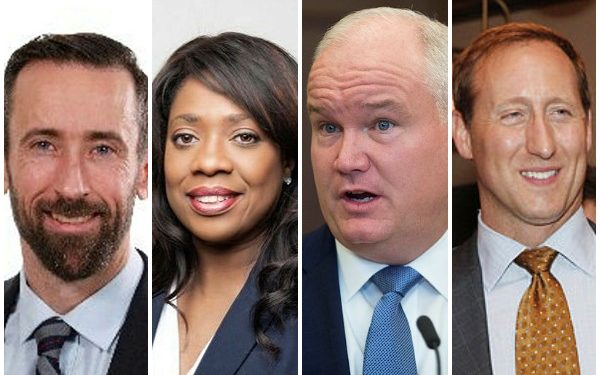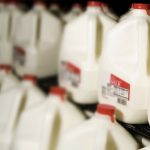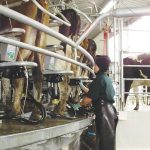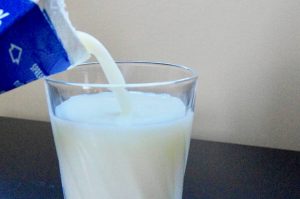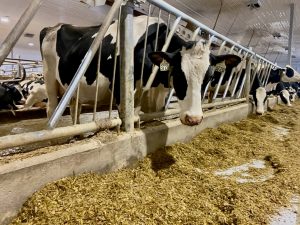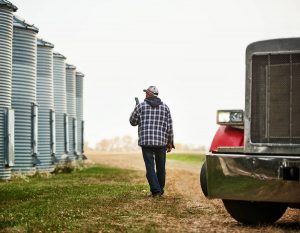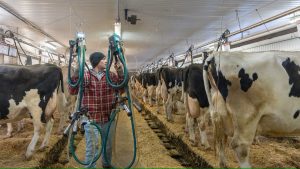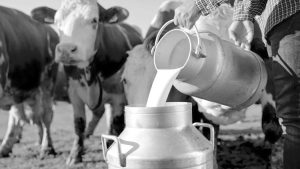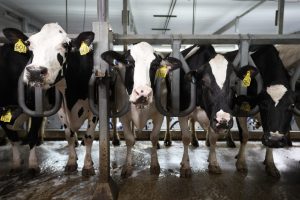
The three leading candidates in the Conservative leadership race have all reached out to Quebec’s dairy farmers with promises to protect the supply management system, in a bid to win support from a group that may have swung the last contest in favour of now outgoing Conservative Leader Andrew Scheer.
However, the organizer of a Facebook group for Quebec’s dairy farmers that played a key role in that 2017 contest told The Hill Times that he does not expect the group will significantly influence the outcome of this year’s leadership contest.
The Conservative Party will elect a new leader at the end of the month to replace Mr. Scheer (Regina-Qu’Appelle, Sask.). The party is not holding a convention in order to respect public health guidelines for the COVID-19 pandemic. Party members have until Aug. 21 to mail in their ballots for the election.
Three men and one woman are candidates for the leadership post: Peter MacKay, a former high-ranking Conservative cabinet minister who left politics in 2015; Erin O’Toole, the MP for Durham, Ont., who served as the veterans affairs minister in the last government; Leslyn Lewis, a Toronto lawyer who is new to politics; and Derek Sloan, the MP for Hastings-Lennox and Addington, Ont.
A French-language Facebook group titled Les Amis de la Gestion de L’offre et des Régions—Friends of Supply Management and the Regions, in English—rallied Quebec dairy farmers during the 2017 leadership contest, urging them to sign up as party members and vote for any candidate besides Maxime Bernier, who had campaigned on a promise to scrap the system governing the production of dairy, eggs, and poultry in Canada.
The supply management system limits the amount of product farmers can produce and sell, keeping prices for those goods high. Canadian tariffs keep out international competitors, with some exceptions.
The dairy farmers may have swung the outcome of the last leadership race. Mr. Bernier lost to Mr. Scheer (Regina-Qu’Appelle, Sask.) by a razor-thin margin of about one percentage point. Three of Mr. Bernier’s rivals in that contest including Mr. Scheer sought endorsements from the organizers of the group, visited dairy farms for photo ops, or asked organizers to sell memberships on their behalf. The chief administrator of Les Amis, Jacques Roy, hosted candidate Steven Blaney for a photo op on his own farm.
This time, Mr. MacKay and Mr. O’Toole have reached out to Les Amis as part of their campaigning in Quebec. Both candidates sent the group videos in which they delivered short speeches in French promising to support the supply management system and agricultural sector. Ms. Lewis and Mr. Sloan have not reached out to the group, according to Mr. Roy, but Ms. Lewis has run ads promising to support dairy farmers in both French and English to Facebook users in Quebec.
Conservative MP Luc Berthold (Mégantic-L’Érable, Que.) also posted a video on Facebook in July, standing in front of a pen full of cattle. Mr. Berthold says he visited a farm in Coaticook, Que. with Mr. MacKay; that he supports supply management; and that he supports Mr. MacKay in the party leadership race, in part because of Mr. MacKay’s positions on agriculture.
However, with no candidate vocally opposing the supply management system, Quebec’s dairy farmers don’t appear to be as engaged in this year’s campaign as they were in the last, Mr. Roy told The Hill Times in a series of messages exchanged via Facebook.
Les Amis has nearly 12,000 members, but Mr. Roy said it’s likely that fewer of them are Conservative Party members now than were during the last campaign. Mr. MacKay seems to be receiving the most positive comments from group members, he said, but others favour Mr. O’Toole.
Mr. Roy said that he did not think Quebec’s dairy farmers would influence the outcome of this year’s leadership contest, because their votes would be distributed among the candidates.
One of Mr. O’Toole’s top organizers in the province gave a similar assessment in an interview with The Hill Times. Former Quebec MP Alupa Clarke said that the Roxham Road irregular border crossing, rail blockades, and respect for Quebec were the top issues for Quebec Conservatives now.
Supply management? “It’s not an issue,” said Mr. Clarke, who is a senior adviser with Wellington Dupont Public Affairs, and is serving as the O’Toole campaign’s Quebec chair.
Mr. O’Toole supports supply management, and so do the other candidates, said Mr. Clarke. There don’t appear to be any coordinated third party campaigns to push dairy farmers toward or away from any of the candidates, he said.
Mr. O’Toole sent a video to Les Amis, said Mr. Clarke, because it is normal for a campaign to speak to groups within the province about issues important to them. The O’Toole campaign platform includes policies supporting supply management and agriculture, but “no specific strategies around [the] supply management group,” he said.
Mr. Clarke said he had personally called about 5,000 party members in the province on behalf of the O’Toole campaign, and was planning to undertake a week-long trip across the province to visit members who weren’t accessible by phone or email. He said that Mr. O’Toole had held weekly Zoom meetings for interested party members in Quebec every week during the campaign, and for a month did four such meetings every week.
The O’Toole campaign also held what Mr. Clarke called “teleforums” for party members in the province several times, autodialing 13,000 party members at once, and holding a teleconference with any of those who chose to stay on the line and listen in.
Mr. O’Toole has three pages of his policy platform devoted specifically to Quebec, including a promises to protect supply management and “put an end to the failure of the Liberal government in commercial treaty negotiations and their negative impact on the dairy industry.”
Mr. MacKay’s policy platform does not include a section for Quebec specifically, but promises to protect the supply management system. In the video that the MacKay campaign sent to Les Amis, Mr. MacKay promises to introduce legislation to protect the supply management system, and to stop conceding market share to foreign producers through international trade agreements.
Ms. Lewis’ platform includes a lengthy section in which she promises to defend supply management, “stand up for our dairy farmers,” and stop giving market access to other countries.
Mr. Sloan’s platform does not explicitly mention supply management, dairy farmers, or Quebec.
Quebec party membership nearly doubled during campaign
The format for the Conservative leadership election indirectly places a higher value on votes from party members in ridings where the party is less popular, including much of Quebec, where the Conservatives routinely poll in third place.
Each federal riding in Canada is given equal weight in determining the outcome of the leadership election, regardless of how many members live and vote there. Each riding is worth 100 points, and candidates are awarded points for the share of the vote they receive in each riding: for example, a candidate who receives 40 per cent of the vote in a riding will be awarded 40 points, regardless of whether that 40 per cent represents 10 votes or 100 votes.
In ridings with relatively few party members—including many in Quebec—a leadership campaign can capture a greater share of the vote by persuading one party member, or signing up a new one, than it would by winning over a member in the Conservative heartland.
The number of party members in Quebec more than doubled during the 2017 leadership contest, as campaigns raced to sign up new supporters. By the end of the race there were 16,483 party members in Quebec, out of 259,010 nationwide, iPolitics reported.
The party’s nationwide membership has swelled again this year to 270,000 because of the leadership contest, according to a party press release. That release said that membership in Quebec has nearly doubled during the race, but did not say how many members there now are in that province. Mr. Clarke said there were around 13,000 party members in Quebec.
The Conservatives currently hold 10 seats in Quebec, behind the Liberals’ 35 and Bloc Québécois’ 32. Alexandre Boulerice holds the remaining seat, Rosemont—La Petite-Patrie, for the NDP. Weekly rolling polls by Nanos Research showed the Conservatives in third place in Quebec as of July 31, with just shy of 15 per cent support, behind the Liberals (38 per cent) and the Bloc (27 per cent), and just ahead of the NDP (12 per cent).
